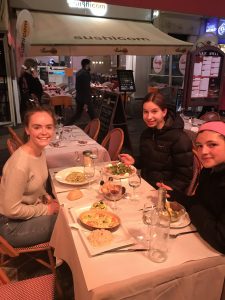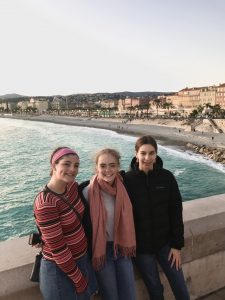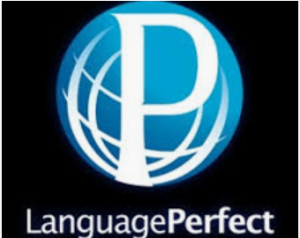Teaching for Thinking in Languages
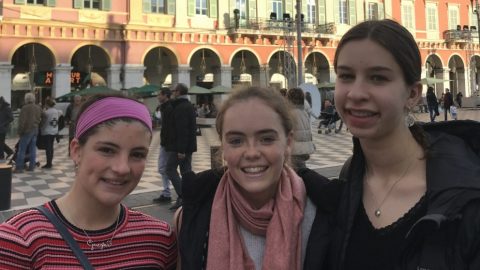
St Catherine’s staff recently gathered to plan for the Teaching for Thinking project running this year in partnership with the University of Queensland. Our challenge is to articulate the ways we can challenge students to think critically, communicate clearly, and solve complex problems in the Languages setting. As a team we posed the question: What is Linguistic Thinking?
This week in my Year 9 class students have been planning for an assessment which requires them to speak impromptu in French about their plans for the weekend. When I asked students to reflect upon the activity and their progress, one student declared: “this is a really difficult task”. I was so pleased that this was their response! And my response was: “Yes, it is really challenging and your teachers have selected it because we know you are up for it”.
Through a process of selecting language, writing and rehearsing, students have proved themselves able to discuss, negotiate, elaborate and justify their plans in a second language. They can feel justifiably proud of rising to this challenge.
Holiday Immersion Experiences
One of the best ways for our students to develop their linguistic capacity and personal resilience is through an immersion exchange.
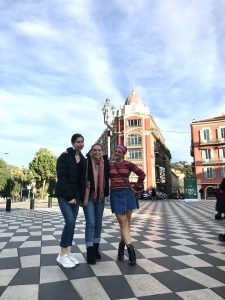 On the 6 December 2019 current Year 12 students Julia Thompson, Isobel Tanner and Georgina Vote (Year 11) began a six week exchange to our Sister School, Cours Fénélon in Toulon. We began the experience in Nice, pictured left. We also acknowledge and commend Madeline Powell (Year 10, 2020) who also undertook an independent exchange in the Bordeaux region.
On the 6 December 2019 current Year 12 students Julia Thompson, Isobel Tanner and Georgina Vote (Year 11) began a six week exchange to our Sister School, Cours Fénélon in Toulon. We began the experience in Nice, pictured left. We also acknowledge and commend Madeline Powell (Year 10, 2020) who also undertook an independent exchange in the Bordeaux region.
Here is how Georgina Vote (Year 11, French 2020) responded to her experience:
“The French exchange I participated in over the summer holidays was linguistically beneficial and improved my use of the language immensely. I found that simply hearing it every day and everywhere was enough to generally improve my overall comprehension of the language, as well as all the help I got at school from my exchange sister and her friends. Everyone was friendly and encouraged me to speak in French as often as I could, even the teachers at school who urged me to participate in class discussions.”
Julia Thompson (Year 12, French 2020) was quite overwhelmed initially, but quickly adapted:
“I was greeted with a warm hug from my exchange sister and a kiss on each cheek from all of her friends. I was also bombarded with questions, although there was a slight problem, which was that I didn’t understand them. In all the excitement, I think they forgot that I don’t speak fluent French. In saying this, as the weeks went on, I found myself understanding more and more.”
Isobel Tanner (Year 12, 2020) found exchange so beneficial upon embarking Year 12:
“Now that I’m studying Year 12, I find it much easier to openly communicate in French. Before, I was extremely doubtful about my abilities but after spending the Summer in Toulon it truly opened my perspective on speaking. Also, my comprehension of French improved tremendously after the exchange. At first, I understood practically nothing, but it was the little break-throughs that always motivated me.”
Ultimately, students are enriched personally, culturally as well as linguistically through exchange. At St Catherine’s we offer opportunities which reflect the values we espouse in our Charter: “we are committed to nurturing and empowering independent and globally responsive young women”. This is evident in Isobel’s conclusion:
“I’d recommend this experience to other students because it showed me the true understanding of a different culture and way of life that really interested me. On a personal level, I think I gained so much self-confidence and independence, not just as a student but also individually. Now, I’m much more inclined to experience things to a greater extent and empathise with different people. I’ve also made life-long international friends and feel deeply connected to people in a completely different country which is incredible!”
In the Classroom and VCE Success
While acknowledging the benefits of learning a language at all levels, we also particularly recognise and commend those students of languages who achieved exceptional results in their VCE studies in 2019. Congratulations to 2019 graduates Indiana Wilde, Lucy Croft, Jacinta Yi and Amelia Sun, all of whom achieved scores above 40 in their language study. These students all exhibited the learning behaviours necessary for VCE success in languages: the capacity to direct their own learning and to deepen their linguistic knowledge through immersion.
Students studying a Unit 3 /4 language in 2020 are now well into their courses, with most students completing their first SAC over the next two weeks.
If your daughter is studying a language, as well as homework after each class, there are a number of extension opportunities available to her to access her second language at home. Is your daughter practising with Language Perfect, Duolingo, Yabla or News in Slow French or a language learning App? Which streaming sites offer films or programs to extend her vocabulary and cultural knowledge? Success in language requires regular practice and ongoing commitment.
Hopefully today’s update gives you and your daughter ideas to foster and inspire her Languages journey.


